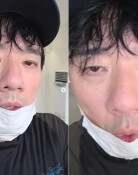What can doctors gain after losing patients’ trust?
What can doctors gain after losing patients’ trust?
Posted June. 17, 2024 07:51,
Updated June. 17, 2024 07:51
Professors at four hospitals affiliated with Seoul National University, including Seoul National University Hospital, are taking mass walkouts indefinitely starting Monday. The Korean Medical Association is also expected to go on strike Tuesday after the government rejected their three demands, including reconsidering the proposed expansion of student quotas for certain medical schools this year. Yonsei University Severance Hospital has announced a mass walkout indefinitely from June 27. Samsung Medical Center is also discussing a walkout indefinitely, and the others among Big 5 hospitals are also set to join the collective strike led by the Korean Medical Association, raising concerns about a medical service vacuum.
The professors at Seoul National University are proposing the revocation of the executive order disciplining trainee doctors as a condition for the cancellation of their indefinite walkout. However, the government is sticking to its position that it can only rescind the executive order for trainee doctors who return to work. The medical association is making two other demands. However, reconsidering this year's medical school enrollment is difficult to reverse due to the college admission schedule. In contrast, the revision of the essential medical policy package can be resolved through consultation between doctors and the government. Doctors have made unacceptable demands and are now resorting to extreme measures without any proper dialogue to resolve the situation with the government authorities. For this reason, doctors have failed to win support from the public.
Professors at Seoul National University Hospitals said there would be no disruption to treating patients with severe and rare diseases and patients requiring emergency care. Still, even severely ill patients have been informed that their treatment will be postponed. The hospital's operating room utilization rate is expected to halve from 63% to 34% once the indefinite walkout begins. Compared to before the mass strike of trainee doctors, the rate could drop to one-third, making it difficult for patients to receive surgery in a timely manner. The prolonged exodus of trainee doctors has exacerbated difficulties in hospital management, putting nurses and hospital workers at risk of unpaid wages and layoffs. Even if their demands are accepted, what can they gain in return after losing the trust of patients and coworkers?
The medical community's concerns and criticisms of the government's medical school expansion policy are not without merit. However, a powerful group of professionals responsible for saving human lives must be conscientious about what they say. Doing no harm to patients is the most fundamental principle of a doctor's professional ethics. The government is also to blame for the confusion, as it single-handedly pushed for expanding enrollment at medical schools. The government should urgently establish a credible consultative body so that the medical community can actively participate in efforts to resolve the medical crisis and stop the quality of medical education from deteriorating while fulfilling their professionalism.



![[김순덕의 도발] ‘李부터 연임’ 개헌, 이 대통령은 가능성을 말했다](https://dimg.donga.com/c/138/175/90/1/wps/NEWS/IMAGE/2026/01/16/133172656.1.jpg)



